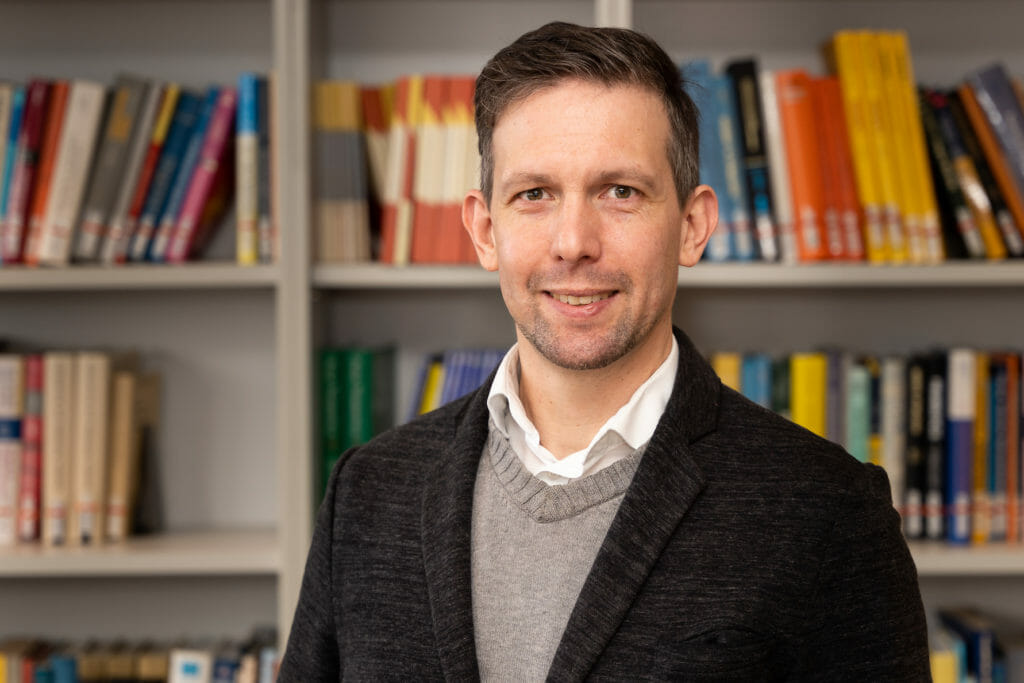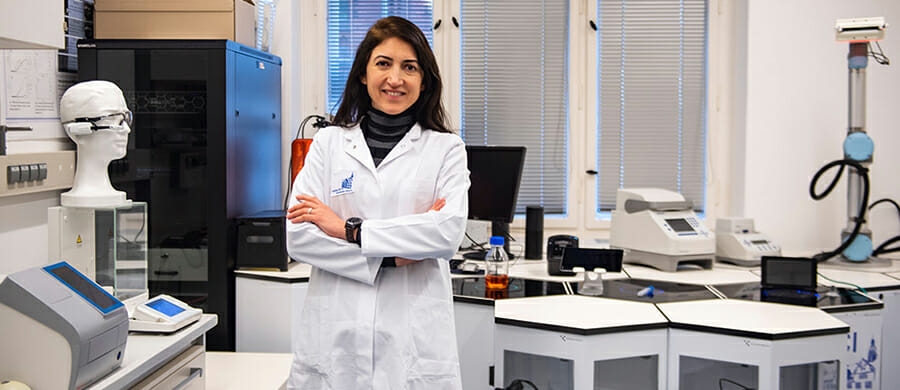TU Braunschweig
Institute for Mathematical Optimization
DATA & FACTS
Project
SCARCE – Scalable Control Approximations for Resource Constrained Environments
Scientific contact
Prof. Dr. Christian Kirches
EU-Funding line
ERC Consolidator Grant
Keywords
Awards, Mathematics
Projektleitung: Prof. Dr.-Ing. Arno Kwade
Projektname: „Li-Ion Pilot Lines Network“ (LiPLANET)
Keywords: Energie, Mobilität, Partner
Prof. Christian Kirches receives ERC Consolidator Grant
Nearly two million euros in funding for mathematical optimisation project at TU Braunschweig
For his research in the field of mathematical optimisation, Professor Christian Kirches from Technische Universität Braunschweig receives a coveted Consolidator Grant from the European Research Council (ERC). The project “SCARCE” (Scalable Control Approximations for Resource Constrained Environments) will be funded for five years with around two million euros. The ERC Grant is one of the most renowned funding programmes for scientists in Europe.
“This is a great honour and award,” said Professor Christian Kirches from the Institute for Mathematical Optimization after the announcement of the EU funding awards. A total of 321 researchers from 21 countries will be supported with a funding volume of 657 million euros. “Our institute will grow significantly. The funding will enable us to employ up to five doctoral students and postdocs, and we will have additional funds for our equipment and conference visits, for example. Of course, this will mean a completely different kind of work for us in the next few years. The fact that our field of work is eligible for funding at an excellent level throughout Europe makes us proud,” continues Kirches, who is one of seven TU professors who have been awarded an ERC Consolidator Grant so far.
“I congratulate Professor Christian Kirches on this high award for his outstanding scientific achievements. By awarding the Consolidator Grant, the European Research Council underlines the high relevance of his work for scientific and social progress. With his success, Professor Kirches reinforces the international appeal of TU Braunschweig as a top research institution,” says TU President Angela Ittel.
The start of the “SCARCE” research project is planned for July. The reason for this is also that mathematics, like many fields, is currently challenged to recruit high-calibre young talent, Professor Kirches regrets: “Especially for a project like this, you naturally want to recruit only the best and it will take some time to find suitable applicants”. The project is a nice opportunity to enter the scientific world at an excellent level and then start a scientific career. “I myself was lucky enough that my doctoral supervisor Hans Georg Bock had an ERC grant in Heidelberg. That’s how I found out what kind of external effect it has.”
“SCARCE” conducts basic research for mathematical optimisation problems
Mathematical optimisation deals with different areas of daily life in which optimisation problems arise. “A well-known example is autonomous driving,” explains Kirches. How do you design a vehicle so that it is on the road with as little risk as possible? How do we transport heat in the district heating network? How do we transport electricity? How do we provide electrical power in a complex network with hybrid vehicles, solar panels and energy storage? For mathematics, these are similar questions that are associated with very comparable theoretical difficulties. “In ‘SCARCE’ we now want to develop the mathematical theory for such questions and work out how the resulting optimisation problems can be solved efficiently,” says Professor Christian Kirches.
What do solutions look like and how can they be calculated? How efficient and how fast can it be done? Does it depend on the size of the network? What do procedures that calculate solutions look like? Do the calculations work in real time when, as in the traffic example, boundary conditions such as the weather or the number of vehicles change? These mathematical problems are so difficult that you can’t just slay them by buying chips, Kirches emphasises: “You can wait for the computers to get faster, but the problems get harder much faster than the computers get faster.”
Providing basic technologies for practice
Mathematics is always basic research. It is not to be expected that the project will change the automotive, district heating or electricity sector in the next few years. The point is to provide basic technologies and to show that with high-level research, for instance, much more savings and efficiency potential can be raised than is possible with the relatively simple local control and regulation techniques currently used in practice.
“Over the next five years, we want to design algorithms and write computer programmes that will then be made available to the scientific community as a project result. We are also hoping for interest from industry and are cultivating corresponding contacts in the Braunschweig region,” says Professor Christian Kirches.
About the European Research Council (ERC)
The European Research Council, founded by the European Union in 2007, is the main European funding organisation for excellent frontier research. It funds creative researchers of all nationalities and ages who run projects across Europe. The ERC is led by an independent governing body, the Scientific Council. The ERC’s total budget for the years 2021 to 2027 is more than 16 billion euros and is part of the “Horizon Europe” programme.

This might also interest you…

Project: ScaleUp4Sustainability
New approaches to collaboration between students and companies developed in Germany, Sweden and the Netherlands. Between 2018 and 2022, the University of Oldenburg coordinated a consortium consisting of two universities (besides Oldenburg, the University of Linköping, SE), 6 companies (including the Oldenburg companies EWE Aktiengesellschaft…

Project: decades
The chemical industry is currently facing the challenging transformation of replacing classic, chemical manufacturing processes based on petroleum with sustainable, bio-based products, in line with the concept of a circular bioeconomy. Solvents, in particular, play a crucial role in the chemical industry along the entire production chain.
